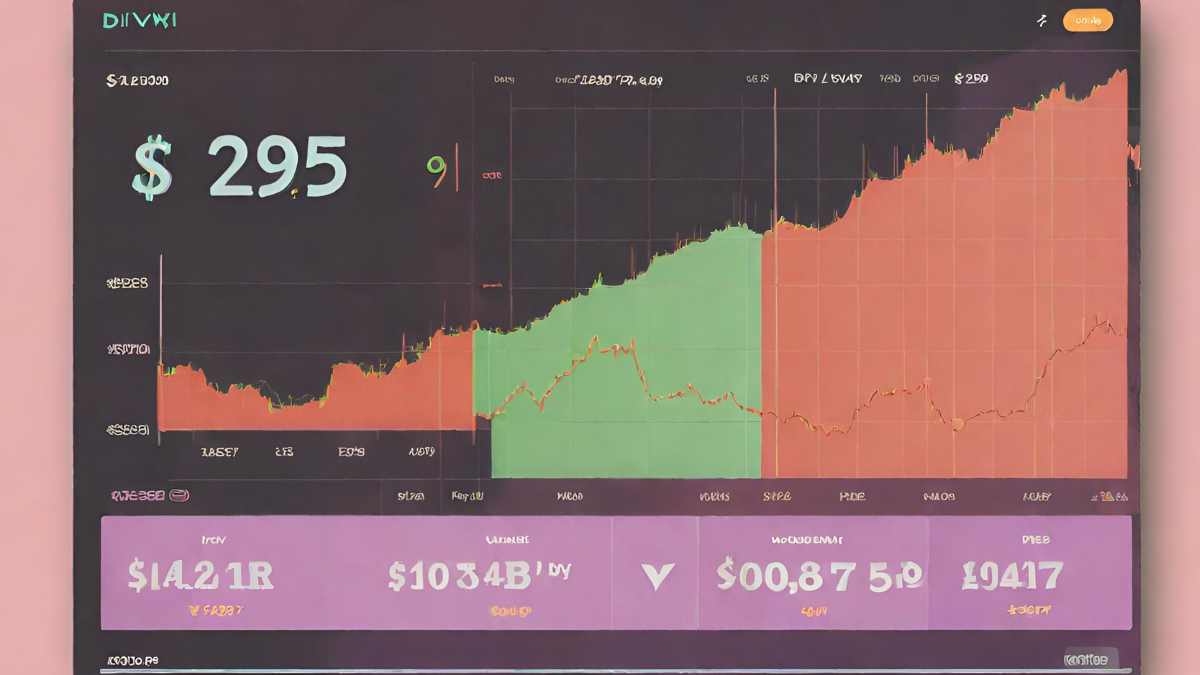One truth about cryptocurrency is that it operates on decentralized technology with secure transactions. Cryptocurrency is a digital form of currency that uses encryption techniques to secure financial transactions online.
In recent years, the popularity and value of cryptocurrencies like Bitcoin and Ethereum have increased significantly. With the potential for high returns and the convenience of online transactions, many individuals and investors are exploring the world of cryptocurrency. However, the volatile nature of the market and concerns about regulatory issues have also drawn scrutiny.
Despite these challenges, the growing acceptance and adoption of cryptocurrency indicate its potential to revolutionize the financial industry.
Introduction To Cryptocurrency

Cryptocurrency is a digital currency that operates independently of a central bank. Its transactions are secured using cryptography, providing a decentralized and secure means of exchange.
Cryptocurrency: An Introduction
Cryptocurrency has revolutionized the financial world, offering an alternative to traditional currencies that is decentralized and secure. Unlike regular money, digital currencies are based on advanced cryptographic techniques that ensure transactions are verified and secure. In this section, we will explore the basics of cryptocurrency, its advantages, and how it works.
Advantages Of Cryptocurrency:
- Increased Security: Cryptocurrency transactions are highly secure due to the use of cryptographic techniques. Each transaction is verified and recorded on a decentralized ledger called a blockchain, making it nearly impossible to alter or counterfeit.
- Decentralization: Unlike traditional currencies that are regulated by centralized authorities like banks or governments, cryptocurrencies operate on a decentralized network. This means that no single entity has control over the currency, making it resistant to censorship and government interference.
- Enhanced Privacy: Cryptocurrency transactions offer a certain level of anonymity. While the details of transactions are recorded on the blockchain, the identities of the parties involved remain relatively anonymous, adding an additional layer of privacy.
- Global Accessibility: Cryptocurrencies can be accessed and used by anyone with an internet connection, regardless of their location. This opens up opportunities for individuals in underserved regions to participate in the global economy and access financial services.
- Lower Transaction Fees: Traditional financial systems often incur high transaction fees, especially for international transfers. Cryptocurrency transactions typically have lower fees, making them more cost-effective, especially for cross-border payments.
How Cryptocurrency Works:
- Blockchain Technology: Cryptocurrencies operate on a technology called blockchain. A blockchain is a distributed ledger that records all transactions across a network of computers. This network verifies and adds new transactions to the blockchain, creating a transparent and immutable record of all transactions.
- Cryptographic Techniques: Cryptocurrencies use cryptographic techniques to secure transactions and control the creation of new units. These techniques ensure the integrity and security of the currency, making it resistant to fraud and counterfeiting.
- Mining: Mining is the process of validating and adding new transactions to the blockchain. Miners use powerful computers to solve complex mathematical puzzles, and in return, they are rewarded with newly minted coins. Mining also plays a vital role in maintaining the security and integrity of the cryptocurrency network.
Future Of Cryptocurrency:
The future of cryptocurrency looks promising, with the potential to disrupt traditional financial systems and reshape the global economy. As more individuals and businesses adopt cryptocurrencies, their value and acceptance continue to grow. However, challenges such as regulatory uncertainties and scalability issues need to be overcome for widespread adoption to take place.
Cryptocurrency offers a secure, decentralized, and efficient alternative to traditional currencies. With its various advantages and growing acceptance, it is clear that cryptocurrencies are here to stay and will play a significant role in shaping the future of finance.
Characteristics Of Cryptocurrency

Cryptocurrency is digital money decentralized and secured through cryptography, offering transparency and no government control. Transactions are immutable on blockchain technology, enabling peer-to-peer exchanges.
:
Cryptocurrency possesses distinctive features that set it apart from traditional forms of currency. These characteristics include:
- Decentralization: Cryptocurrencies operate on a decentralized network, eliminating the need for a central authority like a government or financial institution. This decentralization enhances security and transparency.
- Anonymity: Transactions made with cryptocurrencies are often pseudonymous, providing a certain level of privacy for users. However, the degree of anonymity can vary depending on the cryptocurrency used.
- Immutability: Once a transaction is recorded on a blockchain, it cannot be altered or deleted. This immutability ensures the integrity of the transaction history and prevents fraudulent activities.
- Limited Supply: Most cryptocurrencies have a predefined maximum supply, making them inherently deflationary. This limited supply can contribute to the long-term value appreciation of the cryptocurrency.
- Global Access: Cryptocurrencies can be accessed and used by anyone with an internet connection, enabling borderless transactions without the need for intermediaries or currency conversions.
- Security: Cryptocurrencies utilize cryptographic techniques to secure transactions and protect user funds. Public and private keys ensure secure access to wallets and authorize transactions securely.
These characteristics collectively contribute to the unique nature of cryptocurrency, making it a revolutionary form of digital currency with the potential to transform the financial landscape.
Comparison With Fiat Money
Cryptocurrency differs from fiat money as it operates on a decentralized system without government control. Transactions are secure and transparent, offering anonymity.
:
Cryptocurrency and fiat money exhibit distinct characteristics and functions. Here are some key points to understand the comparison between the two:
- Cryptocurrency:
- Operates on decentralized networks:
- Transactions are verified by a network of nodes.
- Limited supply:
- The issuance of most cryptocurrencies is capped, which may affect inflation.
- Anonymity and transparency:
- Provides pseudonymous transactions that are publicly recorded on the blockchain.
- Borderless transactions:
- Allows for international transactions without the need for currency conversion.
- Fiat Money:
- Centralized issuance:
- Governments and central banks control the production and value of fiat currency.
- Unlimited supply:
- Central banks can print more money, potentially leading to inflation.
- Identity linkage:
- Transactions are usually linked to personal identities, enabling tracking and control.
- Geographically restricted:
- Currency is limited to its country of issuance, requiring conversion for international transactions.
Potential True Statements

Cryptocurrency offers potential true statements regarding its nature, such as its decentralized nature, secure transactions, and potential for financial growth. It has revolutionized the financial world with its innovative technology and global acceptance.
Cryptocurrency has gained significant attention and popularity in recent years. As individuals and businesses explore the possibilities it offers, it’s important to know the potential true statements about cryptocurrency. Let’s dive into some key points to help you gain a better understanding:
Cryptocurrency Is Decentralized:
- Decentralization is one of the fundamental characteristics of cryptocurrency.
- It means that there is no central authority, like a government or a bank, controlling or managing the transactions.
- Instead, cryptocurrency operates on a distributed ledger technology called blockchain, which is maintained by a network of computers.
Cryptocurrency Offers Anonymity:
- While some cryptocurrencies offer a higher level of privacy, it is not entirely anonymous.
- Transactions made with cryptocurrency are recorded on the blockchain, which is publicly accessible.
- However, the identity behind the wallet addresses can be shielded through various measures.
Cryptocurrency Is Secure:
- Cryptocurrency transactions utilize cryptographic techniques to ensure security.
- Blockchain technology provides transparency and immutability, making it difficult to tamper with or manipulate transaction records.
- However, the security also relies on the individual’s responsibility to protect their cryptocurrency wallets and private keys.
Cryptocurrency Is Volatile:
- Cryptocurrency markets are known for their high volatility.
- Prices can experience sudden and significant fluctuations within short periods of time.
- This volatility can present both opportunities and risks for investors and traders.
Cryptocurrency Has Limited Supply:
- Many cryptocurrencies have a finite supply, meaning there is a limit to the number of coins that will ever be created.
- This limited supply can contribute to the perceived value and scarcity of certain cryptocurrencies.
- Bitcoin, for example, has a maximum supply of 21 million coins.
Cryptocurrency Transactions Are Irreversible:
- Once a cryptocurrency transaction is confirmed and added to the blockchain, it is generally irreversible.
- This characteristic eliminates the need for intermediaries such as banks to oversee and verify transactions.
- However, it also puts the responsibility on the sender to verify the recipient’s address and ensure the accuracy of the transaction details.
Cryptocurrency Is Borderless:
- Cryptocurrencies operate on a global scale without being restricted by borders or geographical boundaries.
- Users can send and receive cryptocurrencies to anyone, anywhere in the world, as long as there is an internet connection.
- This borderless nature has the potential to facilitate faster and more cost-effective international transactions.
Cryptocurrency Can Empower Financial Inclusion:
- Cryptocurrency has the potential to provide financial services to the unbanked and underbanked populations.
- By leveraging blockchain technology and bypassing traditional intermediaries, cryptocurrencies can offer financial services to those who don’t have access to traditional banking systems.
- This can help foster financial inclusion and empower individuals in underserved communities.
Cryptocurrency Adoption Is Growing:
- Over the years, cryptocurrency adoption has been steadily increasing.
- More merchants are accepting cryptocurrency payments, and financial institutions are offering services related to cryptocurrencies.
- This growing adoption signifies the increasing recognition and integration of cryptocurrencies into mainstream society.
Cryptocurrency Has Various Use Cases:
- Cryptocurrencies have evolved beyond being solely a medium of exchange.
- They can also be used for purposes such as smart contracts, decentralized finance (DeFi), remittances, and fundraising through initial coin offerings (ICOs) or token sales.
Cryptocurrency continues to evolve, and it’s important to stay informed about the potential true statements surrounding this digital asset class. Whether you are considering investing, using cryptocurrency for transactions, or exploring its applications, these key points provide a solid foundation to guide you on your crypto journey.
Potential False Statements
Cryptocurrency often sparks debates, with conflicting statements regarding its authenticity. False claims and misinformation are prevalent, leading to confusion. It is essential to verify the facts to gain a clear understanding of the truth amidst the speculation.
:
Cryptocurrency can be a confusing subject, and misinformation often circulates about it. Here are some potential false statements about cryptocurrency that you should be aware of:
- Cryptocurrency is backed by physical assets: This is false, as cryptocurrency is decentralized and not tied to any physical assets. Its value is determined by market demand and supply.
- Cryptocurrency is completely anonymous: While it does offer a degree of privacy, cryptocurrency transactions are recorded on a public ledger called the blockchain. Therefore, it is not entirely anonymous.
- Cryptocurrency is illegal: Contrary to this statement, cryptocurrency is legal in many countries, with regulations varying from place to place. However, it is important to comply with the laws of your country regarding its use and taxation.
- Cryptocurrency is a guaranteed way to get rich quickly: This is a misconception, as the cryptocurrency market is highly volatile, and investments can result in significant losses. It’s essential to approach cryptocurrency investment with caution and due diligence.
- Cryptocurrency is immune to hacking: While blockchain technology is secure, cryptocurrency exchanges and wallets can still be vulnerable to hacking. It’s crucial to prioritize security measures and use reputable platforms for transactions.
Frequently Asked Questions For Which Of The Following Is True About Cryptocurrency
What Is True About Cryptocurrency?
Cryptocurrency is a digital currency using cryptography for secure transactions. It operates on decentralized networks. Its value can be volatile.
Which One Of The Statements Is True About Cryptocurrencies?
Cryptocurrencies are digital currencies that allow secure online transactions without the need for intermediaries.
Which Is Correct In The Following Statements About The Cryptocurrency?
The statement that is correct about cryptocurrency is that it is a digital form of currency.
Which Of The Following Are Cryptocurrency?
Bitcoin, Ethereum, and Litecoin are examples of cryptocurrencies. Others include Ripple, Cardano, and Dogecoin.
Conclusion
Cryptocurrency offers a decentralized and secure way of conducting transactions, making it an attractive option for many. Its potential for growth and innovation in various sectors cannot be overlooked. Despite its volatile nature, cryptocurrency continues to gain popularity and acceptance globally.
As more people become aware of its benefits, the future of cryptocurrency looks promising. Stay informed and stay ahead in this ever-evolving digital landscape.



